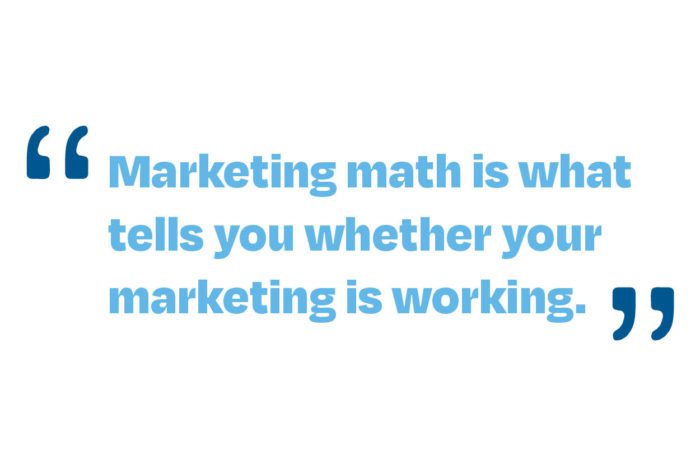
Imagine you're a captain navigating a ship through uncharted waters. You need a map, a compass, and a keen understanding of the currents and winds to reach your destination. In the world of marketing, that map and compass are your marketing analytics and quantitative skills. But does marketing require math? The short answer is yes, and let me tell you why.
The Role of Math in Modern Marketing
In today's data-driven marketing landscape, numbers are the new currency. Whether you're running a small business or a multinational corporation, understanding and leveraging marketing metrics is crucial. Think of it like baking a cake. You need precise measurements of ingredients to get the perfect recipe. Similarly, precise data and statistical analysis are essential for crafting effective marketing strategies.
Understanding Marketing Metrics
Marketing metrics are the lifeblood of any successful campaign. They help you measure the effectiveness of your efforts and make informed decisions. From click-through rates to conversion rates, these metrics provide a clear picture of what's working and what's not. But how do you interpret these numbers? This is where your math skills come into play.
For instance, calculating the return on investment (ROI) for a marketing campaign involves basic arithmetic and a bit of algebra. You need to know how to subtract costs from revenue and then divide by the costs to get a percentage. It's simple math, but it's essential for understanding the financial impact of your marketing efforts.
The Power of Statistical Analysis
Statistical analysis takes your understanding of marketing metrics to the next level. It allows you to identify trends, predict future outcomes, and make data-driven decisions. For example, if you're running an e-commerce site, you might use statistical analysis to determine which products are most likely to sell during the holiday season.
Tools like Google Analytics and social media analytics platforms provide a wealth of data, but interpreting this data requires a solid foundation in statistics. You need to understand concepts like mean, median, mode, and standard deviation to make sense of the numbers. This is where your quantitative skills come into play.
Why Quantitative Skills Matter
Quantitative skills are not just about crunching numbers; they're about understanding the story behind the numbers. They help you see patterns and make predictions. For example, if you notice that your website traffic spikes on Tuesdays, you can use this information to schedule your marketing campaigns more effectively.
Moreover, quantitative skills are essential for budgeting and forecasting. They help you allocate your marketing budget more effectively and predict future revenue streams. This is crucial for any business, big or small.
Real-World Examples
Let's look at a few real-world examples to illustrate the importance of math in marketing.
Case Study: Coca-Cola
Coca-Cola is a master of data-driven marketing. The company uses advanced analytics to understand consumer behavior and tailor its marketing efforts accordingly. For instance, they use statistical analysis to predict which regions will have the highest demand for their products during different times of the year. This allows them to optimize their supply chain and ensure that their products are always available when and where consumers want them.
Case Study: Amazon
Amazon is another great example. The e-commerce giant uses sophisticated algorithms to analyze customer data and provide personalized recommendations. This not only improves the customer experience but also drives sales. Amazon's recommendation engine is a testament to the power of data-driven marketing and the importance of quantitative skills.
How to Improve Your Math Skills for Marketing
If you're not already comfortable with math, don't worry. There are plenty of resources available to help you improve your skills. Online courses, tutorials, and books can all be valuable tools. Websites like Coursera and Khan Academy offer courses on everything from basic arithmetic to advanced statistics.
Additionally, practicing with real-world data can be incredibly beneficial. Try analyzing your own marketing data or use publicly available datasets to practice your skills. The more you practice, the more comfortable you'll become with the numbers.
Conclusion
So, does marketing require math? Absolutely. From understanding marketing metrics to making data-driven decisions, math is an essential tool in the marketer's toolkit. Whether you're a seasoned professional or just starting out, improving your quantitative skills can help you navigate the complex world of marketing more effectively.
Remember, marketing is like sailing a ship. You need a map, a compass, and a keen understanding of the currents and winds to reach your destination. In the world of marketing, that map and compass are your marketing analytics and quantitative skills. So, brush up on your math, and set sail for success!
FAQs
1. What are the most important math skills for marketing?
The most important math skills for marketing include basic arithmetic, algebra, statistics, and data analysis. Understanding concepts like mean, median, mode, and standard deviation can be particularly useful.
2. How can I improve my quantitative skills for marketing?
You can improve your quantitative skills by taking online courses, practicing with real-world data, and using tools like Google Analytics. Websites like Coursera and Khan Academy offer valuable resources.
3. Why is statistical analysis important in marketing?
Statistical analysis helps you identify trends, predict future outcomes, and make data-driven decisions. It allows you to understand consumer behavior and tailor your marketing efforts accordingly.
4. What are some common marketing metrics?
Common marketing metrics include click-through rates, conversion rates, return on investment (ROI), customer acquisition cost (CAC), and customer lifetime value (CLV). These metrics help you measure the effectiveness of your marketing campaigns.
5. How does data-driven marketing benefit businesses?
Data-driven marketing helps businesses make informed decisions, optimize their marketing efforts, and improve their ROI. It allows them to understand consumer behavior and tailor their strategies accordingly, leading to more effective and efficient marketing campaigns.
```
Posting Komentar